Explained: Fixed vs. Variable Mortgages
If you’re a first time home buyer, or just unfamiliar with all the mortgage world lingo, anything mortgage related can be a bit confusing. A common question we get is what is the difference between a fixed and a variable mortgage rate? It’s important to understand the different terms so you know exactly what is going on with your mortgage. Here, with the Weninger Mortgage Team, we make sure that you are able to follow along every step of the process, whereas with big lenders that is not always the case.
Fixed Rate
Having a fixed mortgage rate means that throughout the term of your mortgage your interest rate will remain the same. The rate you have locked in at the time of your approval will be the rate you stick with until your maturity date rolls around (the day your mortgage is due for renewal). We recommend that you reach out to your mortgage professional about 6 months in advance of your maturity date so you have enough time to come up with a plan for your renewal.
Variable Rate
Now, variable rate mortgages are those that do not have a fixed interest rate. Generally, the initial rate will be lower compared to fixed rate mortgages, although as Canada’s prime lending rates vary, so does your mortgage rate. Consequently, this means that your monthly mortgage payments will vary and it’s important to stay up to date on rate changes so you’re aware of the status of your mortgage. An easy way of doing so is staying in touch with your mortgage professional and having semi-annual mortgage check ups so everyone is on the same page.
Pros and Cons
Fixed Rate:
Pros
Peace of mind: you are guaranteed the rate you agreed upon at the time of your mortgage approval and it will not change over the course of your term. Having that stability can allow you to better plan your monthly financials.
In other words, you are protected against any raises in interest rates.
Cons
It might take longer to pay off your mortgage: since you have the stability of your fixed-rate, the length of time it will take you to pay everything off is pretty set in stone. (Yes, you could pay it off earlier if you wanted, but you may be subject to break penalty fees.) So, although you have a lower monthly interest rate, the extra time it will take you to pay it off might end up costing you more.
Variable Rate:
Pros
Lower rates: Although the interest rate will vary over the course of your term, in most cases, there is a limit in how high or how low your rate can adjust to. It is likely you will benefit from lower interest rates and could potentially save money throughout the life of your loan.
Ability to convert to a fixed-rate: with certain lenders you have the option to switch to a fixed rate mortgage during your mortgage. If you decide you aren’t a fan of the variable rates, you can speak to your mortgage professional to see if it a good time to convert your mortgage to a fixed rate.
Minimal break penalties: most lenders will charge you 3-months of interest payments if you pay off your mortgage earlier - which is significantly less than the penalty breaks for fixed mortgage rates.
Cons
Instability: it can be quite difficult to predict the market. With that being said, you may be lucky and benefit from lower interest rates or you could be stuck with a higher interest rate based on the fluctuations of Canada’s prime rate. Additionally, your monthly mortgage withdrawal amount will vary therefore potentially making it a tad more difficult to plan your monthly financials.
Converting costs: If you do decide to convert to a fixed rate loan, you may end up paying more than if you had committed to a rate at the start of your mortgage. Although, the option is still there to make the choice at your discretion.
There are a lot of factors that go into deciding whether a fixed rate or a variable rate mortgage is the right fit for you. It can be quite complex and speaking to a mortgage professional can make these decisions a lot easier.
Here at Weninger Mortgages, we have so much information to share and will make sure you are properly informed before making any large decisions. To review your mortgage plan or to ask any questions BOOK A CALL and let’s see how we can save you some money.
